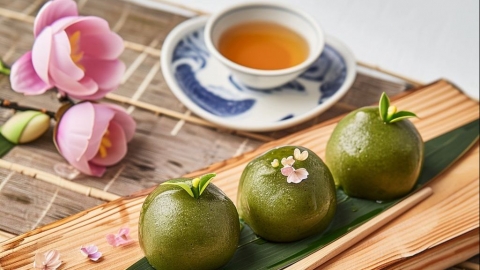What tea should one drink for high blood lipids?
Generally, individuals with high blood lipid levels can moderately consume teas such as green tea, oolong tea, pu'er tea, hawthorn tea, and chrysanthemum tea, which may help lower blood lipid levels. Detailed explanations are as follows:

1. Green Tea
Green tea is rich in tea polyphenols, substances that have antioxidant properties and can inhibit fat metabolism, helping to reduce blood lipid levels. Additionally, it can refresh the mind, enhance alertness, and promote overall health.
2. Oolong Tea
Oolong tea is a semi-fermented tea containing tea polyphenols and various enzymes. These components aid in fat breakdown and reduce fat absorption, thereby lowering blood lipid levels. Moderate consumption of oolong tea can not only assist in reducing blood lipids but also help maintain overall health.
3. Pu'er Tea
Pu'er tea contains abundant tea polyphenols and lipase enzymes, which effectively promote fat breakdown in the body and reduce triglyceride and cholesterol levels. Pu'er tea is a good choice for individuals with elevated lipid levels who need to strictly control their diet.
4. Hawthorn Tea
Hawthorn tea is primarily made from hawthorn berries, which help promote digestion, resolve food stagnation, activate blood circulation, and remove blood stasis. Hawthorn can lower cholesterol levels in the blood and aid in fat digestion.
5. Chrysanthemum Tea
Chrysanthemum tea has properties of clearing heat, detoxifying, improving vision, and nourishing the liver. It can enhance blood vessel elasticity and help prevent hyperlipidemia and its complications. Long-term moderate consumption of chrysanthemum tea helps maintain stable blood lipid levels and supports cardiovascular health.
Individuals with high blood lipid levels should adjust their diet by reducing intake of high-fat and high-calorie foods while increasing dietary fiber consumption. Eating more vegetables, fruits, and fiber-rich foods can help lower blood lipid levels.







